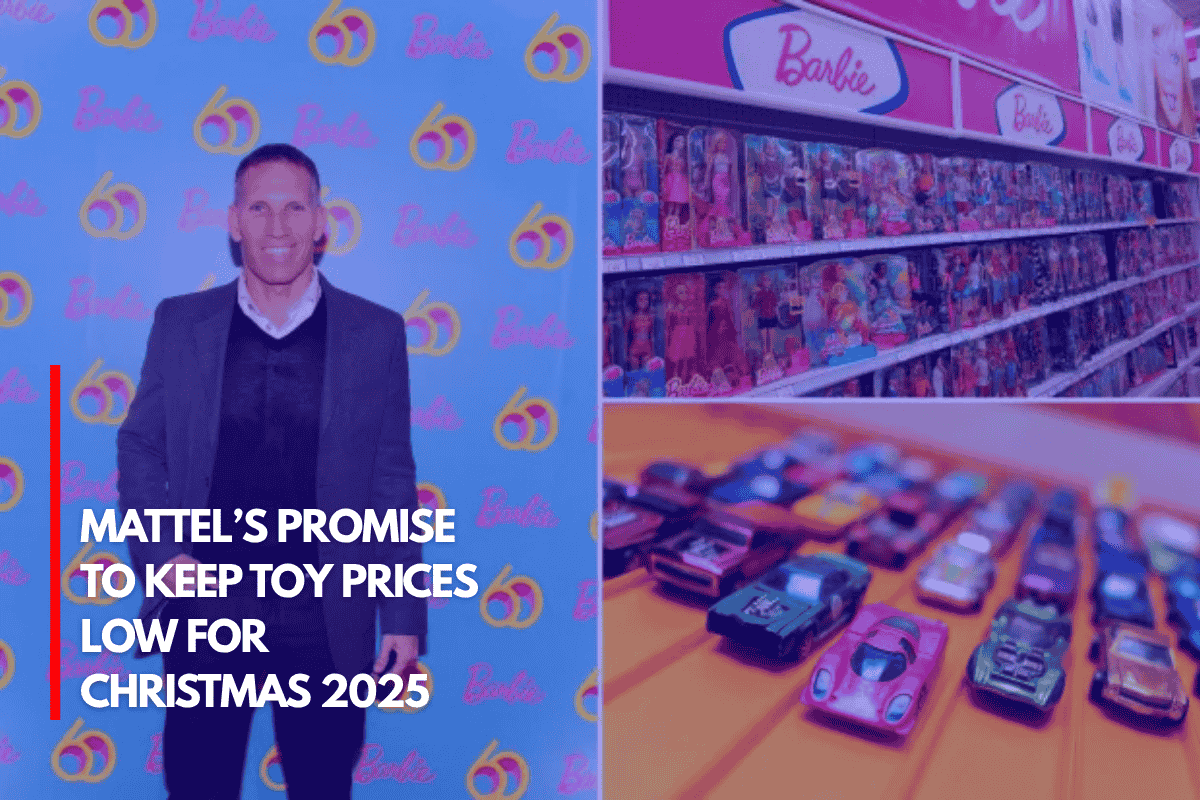One of the biggest toy companies in the world, Mattel, is pledging to maintain pricing within the reach of consumers as Christmas draws near.
In an effort to provide toys that appeal to a broad spectrum of consumers, even in difficult economic times, Mattel’s CEO and CFO have pledged to maintain half of their well-liked products, such as Barbie dolls and Hot Wheels vehicles, at prices under $20.
Mattel s Financial Struggles and Price Increases
Known for its renowned trademarks like Barbie, Hot Wheels, and American Girl, Mattel was founded in 1945 and has experienced some difficult financial times. The business recorded a 6% decline in net sales and net income in the second quarter of this year as compared to the same period last year.
The dolls sector was one of the hardest impacted, falling 19%, in part because there were fewer Barbie product launches.
In addition, Mattel has faced macroeconomic difficulties like tariffs and problems with international trade. Since China accounts for about 80% of toy imports, Mattel is particularly susceptible to price hikes as a result of the state of trade.
The corporation lowered its initial estimate of the cost of tariffs from $270 million to less than $100 million.
Keeping Prices Affordable
Mattel has vowed to keep costs as low as possible for customers in spite of these financial issues and the problems brought on by tariffs.
According to the corporation, 40% to 50% of its US products—such as Hot Wheels and Barbie dolls—will stay under $20 until the next holiday season. With this change, the company hopes to provide consumers with more reasonably priced options while preserving the high caliber of toys for which it is renowned.
Mattel has been working closely with its retail partners to make sure that toy prices don’t go up any further this year, according to CEO Ynon Kreiz and CFO Paul Ruh. For parents and consumers who have already been impacted by price increases in several areas, this is welcome news.
The Impact of Tariffs
The greater operating costs brought on by Trump’s tariffs forced Mattel to boost the price of some toys, including a Barbie doll, back in March. For example, in just one week in April, the price of a Barbie doll wearing a swimsuit increased by 42.9%.
As taxes on Chinese imports were put into place at the time, Mattel issued a warning that price rises would impact a variety of products, from toys to common household items.
Since then, though, Mattel has turned its attention to supply chain diversification. In the upcoming years, the corporation intends to shift some of its production to other nations and lessen its reliance on China.
Mattel plans to increase the number of toys it sources from Chinese manufacturers from 280 in 2024 to roughly 500 in 2025. This action is a component of a larger plan to avoid future shortages and keep customers’ access to toys consistent.
The Holiday Season and Consumer Expectations
Given that consumers are already worried about price rises, Mattel’s pledge to keep toy prices under $20 is especially significant for the approaching Christmas season.
Mattel’s dedication to maintaining reasonable prices is a comfort for parents who wish to purchase gifts without going over budget, as many families are struggling due to rising expenses.
Ynon Kreiz, the CEO of the company, underlined that Mattel is dedicated to provide the ideal ratio of cost and value. Mattel intends to make its toys affordable for a variety of customers by collaborating closely with its retail partners and avoiding additional price increases.
Source









